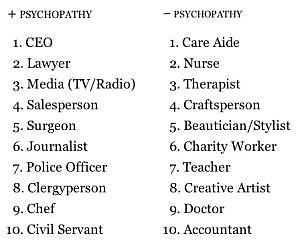If you’ve seen the movie Batman: The Dark Knight you probably remember the scene where there were two boats filled with explosives (if you haven’t seen it watch https://www.youtube.com/watch?v=K4GAQtGtd_0 ). One of the boats had all the cities criminals aboard and the other the regular citizens. Both boats had a remote to destroy the other one. If one of the boats was not destroyed before midnight, both boats will explode. When you look at this scenario, there is a clear decision to be made (blow or not to blow) and a clear risk (dying).
In psychological science, they distinguish 2 forms of risks, risk as analysis and risk as feelings. If you look at the scenario from an analytical point of view, you could argue that there is no point waiting to blow the other boat up. Either the other boat will blow you up first or you die anyways at midnight if no boat is blown up. Rationally seen you would blow the other boat up ASAP, because that is the only option where you don’t die yourself.
In the movie this doesn’t happen. The feelings and emotions on both boats prevent the people from blowing each other up while knowing the risks of this decision. On the boat filled with citizens there is a voting about the decision. There is a large majority that is in favour of blowing the other boat up. Because nobody wants to get their hands dirty, one man stands up and will make the decision. He first argues in an analytical way why the other boat deserves to be blown up, but then as soon as he has the detonator in his hands, he stops. He remains quiet and his feelings prevent him from blowing up the other boat. In the end, luckily nobody dies. With this social experiment I want to highlight two things: the different between risk as analysis and as feelings, and the democratic aspect of decision-making that involves risk.
Politicians, companies, they all make decisions that can influence the lives of other people. Some of these decisions involve risk and benefit analysis. They tend to be fully analytical when dealing with risks and uncertainties. As the previous example showed, making a decision on a pure analytical basis would have resulted in a bad decision. Of course the scenario was in a fictional movie, but science shows also the importance of feelings when making decisions about risks. That is why I think our politicians should stop with their analytical tendency to asses risks and start listening to the people and their feelings.
This takes us to the democratic aspect of decision-making that involves risks. In our post-democratic system we choose people to make decisions for us. One can think this system is good or bad, but that is for another discussion. It does however, give a small group of people the decision power about topics they might not be familiar with. These people are influenced by expert opinions, media and lobbyists when they have to make decisions. A decision outcome relies a lot on what people talk to the politicians and what information is provided to them. History shows that corporations sometimes provide biased information to politicians to favour their own agenda. When a decision involves risks, this biased information can be devastating for the results of a decision. If you look at the following list of careers that attracts psychopaths, doesn’t it trouble you what people make decisions and what people provide information for decisions? CEO’s, Media, Journalists and civil servants. Are the right people making the right decisions?
Do the right people, make the right decisions?
What can we learn from The Joker in The Dark Knight?
